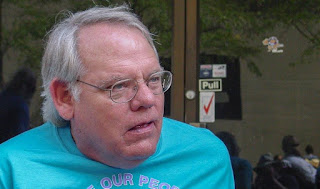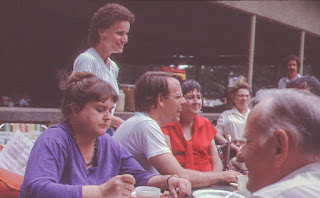By Louis Patrick
I got into one of "those" discussions recently. A fellow I was talking to on the telephone began to harangue me about "those" lazy people who live in the projects. Even with opportunities aplenty and years of practice, I still have no idea of how to grapple with the prejudices and misconceptions behind such “discussions" in a positive manner. Instead, I tried to divert our chat to the disincentives which persons with disabilities face in trying to work, the loss of not only money benefits, but of medical insurance, of housing subsidies, the problems of trying to pay for attendant care. ‘Oh, no!’, the person said, ‘I wasn’t talking about handicapped people.’
He didn't use the words, but what he meant was that disabled persons are among the"deserving poor." That phrase is supposed to imply that while we are indeed poor, it's through no fault of our own, through no sin of sloth or laziness that we are so and that we thus "deserve" to be helped, to be supported (albeit poorly), to be taken care of.
Many of us buy into that image. Consider for a moment, however, whether that doesn't buy us into the reverse side of that coin: disabled people "deserve" to be poor.
There's no question that disabled people have "special" needs, that we need services beyond those other students require to get an education, that we have to stretch an already limited budget to buy equipment that allows us to get around or write or talk. The list could go on, of course. What's left out of a Social Security check to buy theater tickets with?
lf, however, we, as disabled people, continue to focus our hopes on charity and our efforts on obtaining “special" discounts and favors, we will only succeed in perpetuating our poverty and dependency. Our problem isn't that we don't have enough coupons in our our wallets. It's cash we're short of. Let’s stop wasting time begging and start asking that are responsible - to us - for spending millions of dollars for vocational rehabilitation why employment opportunities for persons with disabilities are still virtually nonexistent. Let's get real, honest to God, bloody tired of being poor!
With the proper "special" education and training and the proper "special" equipment we can function competitively in society. More importantly, we can become fully contributing citizens. We have an “inalienable” right to life, liberty and the pursuit of happiness,” a right to take responsibility for ourselves that we can't give away and no one can take from us.








